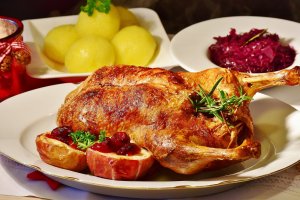What is the best Duck Fat substitute?
Are you looking for a duck fat substitute? Duck fat is known for its rich flavor and high smoke point, making it a popular choice for cooking and flavoring dishes. If you’re looking for substitutes for duck fat due to dietary restrictions, availability, or personal preferences, there are several alternatives you can consider. Try using – bacon fat, chicken fat, butter, avocado oil, vegetable oil, lard, olive oil, coconut oil, or vegetable shortening.
What is Duck Fat?
Duck fat is the fat that comes from the skin of ducks. It is rendered by melting the fat from duck skin and then straining out any impurities. Duck fat is highly prized in culinary circles for its rich flavor, silky texture, and versatility in cooking. It has a distinct savory taste that can enhance the flavor of many dishes.
Duck fat is especially valued for its high smoke point, which means it can be heated to a relatively high temperature without breaking down and producing smoke. This makes duck fat an excellent choice for sautéing, frying, and roasting, as it helps create crispy textures while imparting a deep, flavorful essence to the food.
Some of the common uses of duck fat include:
- Roasting Vegetables: Tossing vegetables in duck fat before roasting can add a delicious richness and help achieve a crispy exterior.
- Frying: Duck fat is great for frying foods due to its high smoke point. Use it to fry potatoes, chicken, and other items.
- Sautéing: Use duck fat for sautéing meats, seafood, and vegetables, providing an additional layer of flavor to the dish.
- Potatoes and Fries: Use duck fat to make perfectly crispy and flavorful French fries or roasted potatoes.
- Pastries and Baking: Use duck fat in pastry dough, providing a unique taste and texture to baked goods.
- Confits: Duck confit involves slow-cooking duck legs in their own fat until they become tender and flavorful. The rendered duck fat is a key ingredient in this traditional French dish.
- Flavoring: Use duck fat to add depth of flavor to soups, stews, and sauces.
Because of its distinct taste and culinary benefits, duck fat has become a sought-after ingredient in both home and professional kitchens. It’s worth noting that while duck fat is delicious and versatile, it is also relatively high in saturated fat, so it’s best enjoyed in moderation, especially if you’re mindful of your dietary intake.
Okay, before we look at your duck fat substitute options, let’s deal with that empty cupboard situation!
Where can I buy Duck Fat?
If you want to be more prepared and ensure you don’t run out of duck fat then you should stock up now.
Nowadays most delicatessens and general supermarkets stock a wide variety of duck fat. Or if you prefer you can also purchase duck fat on-line.
So why not jump on and place your order today.
STOCK UP NOW!
100% rendered duck fat.
Great for roasting, frying and sauteing. Full of flavor. Smooth paste.
What can I substitute for Duck Fat?
Here are some of the best ingredients to substitute the flavor and role that duck fat provides in your recipes.
- Bacon fat
- Chicken fat
- Butter
- Avocado oil
- Vegetable oil
- Lard
- Olive oil
- Coconut oil
- Vegetable shortening
Duck Fat substitutes
Bacon Fat
Bacon fat can be a flavorful substitute for duck fat in various recipes, especially those that can benefit from a smoky and savory flavor. Keep in mind that bacon fat has a distinct taste, so it might not perfectly replicate the flavor of duck fat, but it can still add a unique element to your dishes.
How to make bacon fat:
- Start by cooking bacon in a skillet until it becomes crispy. Remove the cooked bacon and set it aside.
- Pour off the rendered bacon fat from the skillet into a heatproof container.
- For short-term storage (a few weeks to a couple of months), you can store bacon fat in the refrigerator. It will solidify in the fridge, making it easy to scoop or slice when needed.
- Use the bacon fat to sauté vegetables, meat, or seafood. The smoky flavor of the bacon fat can add depth to your dish.
Use bacon fat as follows:
- Use melted bacon fat for frying foods like potatoes, chicken, or other items that you might typically use duck fat for. The smokiness of the bacon fat can add a rather nice additional flavor.
- Add a small amount of melted bacon fat to soups and stews as a flavor enhancer. It can provide a rich and smoky undertone to the dish.
- In recipes where you might use duck fat for baking, such as pastry dough, you can experiment by using a small amount of melted bacon fat. Be aware that the bacon flavor will be present, so consider the compatibility with the other ingredients.
- While traditionally made with duck fat, you can experiment with using bacon fat to make confits. The result will have a different flavor profile, but the slow-cooking process can still provide tender and flavorful meat.
When substituting bacon fat for duck fat, it’s important to consider the flavor compatibility with the rest of the ingredients in your recipe. Bacon fat adds a smoky and salty element, so adjust your seasonings accordingly. Additionally, keep in mind that bacon fat is also relatively high in saturated fat, so use it in moderation.
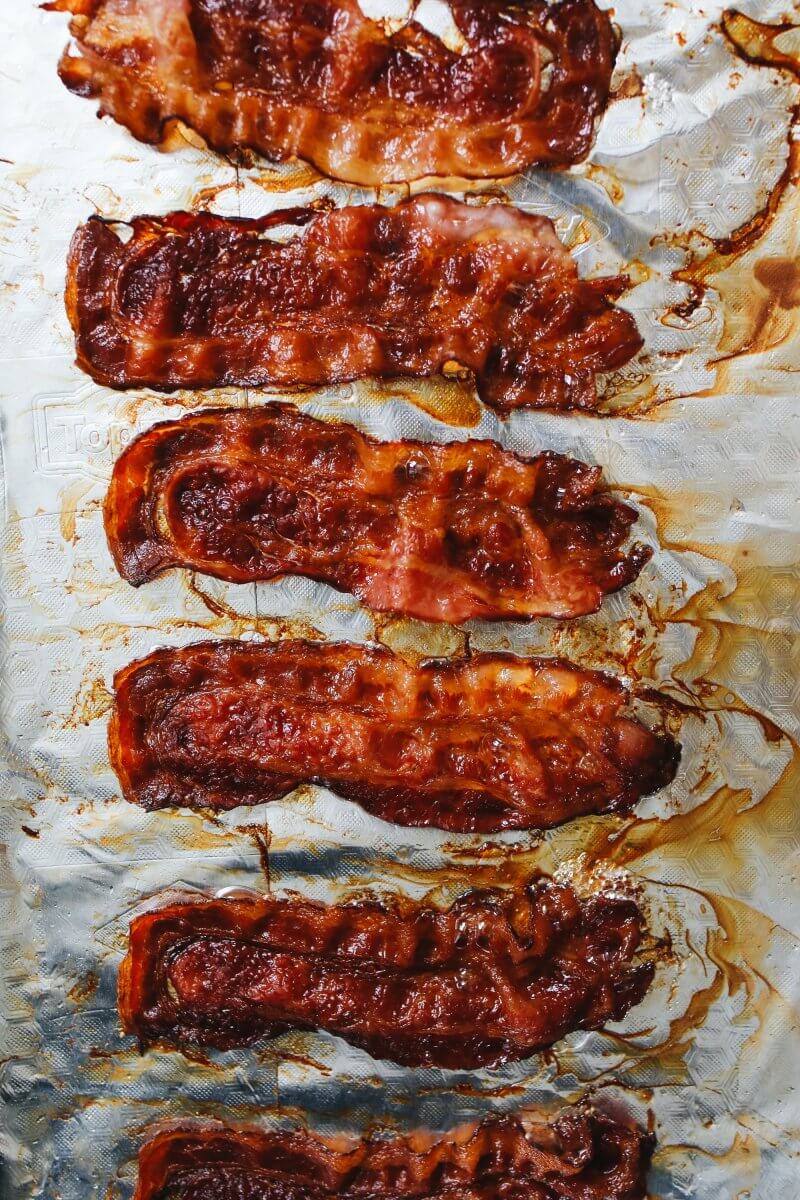
Chicken Fat
Chicken fat, also known as schmaltz, can be a suitable substitute for duck fat in many recipes. While it might not replicate the exact flavor of duck fat, it can still add richness and depth to your dishes. Here’s how to use chicken fat as a substitute for duck fat:
How to render Chicken Fat:
- Start by collecting chicken skin and fat trimmings. You can use the skin from chicken thighs, drumsticks, or a whole chicken.
- Cut the chicken skin and fat into smaller pieces to expose more surface area.
- Place the skin and fat in a skillet or saucepan over low heat. As the fat begins to melt, it will render out from the skin.
- Stir occasionally and continue to cook until the skin becomes crispy and golden brown, and the fat is fully rendered.
- Remove the crispy skin and any solid bits from the rendered chicken fat using a slotted spoon.
Using Chicken Fat as a Substitute:
- Once you have rendered chicken fat, you can use it in various ways similar to duck fat:
- Use chicken fat to sauté vegetables, meats, or seafood. It adds a rich flavor to the dish.
- Brush chicken fat over roasted vegetables or meats before cooking to enhance their flavor and promote browning.
- Use chicken fat to fry foods like potatoes or chicken, providing a nice depth of flavor.
- Incorporate chicken fat into baked goods, such as pastry dough, to add a subtle richness.
- Add a small amount of chicken fat to soups and stews to enhance their taste.
Seasoning Considerations:
- Chicken fat has a milder flavor compared to duck fat, so you might need to adjust seasonings to compensate for the difference.
- Taste your dish as you cook and adjust salt and other seasonings as needed.
Storage:
- Store rendered chicken fat in an airtight container in the refrigerator. It can be kept for a few weeks or frozen for longer storage.
Remember that chicken fat is also high in saturated fat, so moderation is key. While it might not perfectly replicate the taste of duck fat, using chicken fat can still contribute to the overall flavor and richness of your dishes.
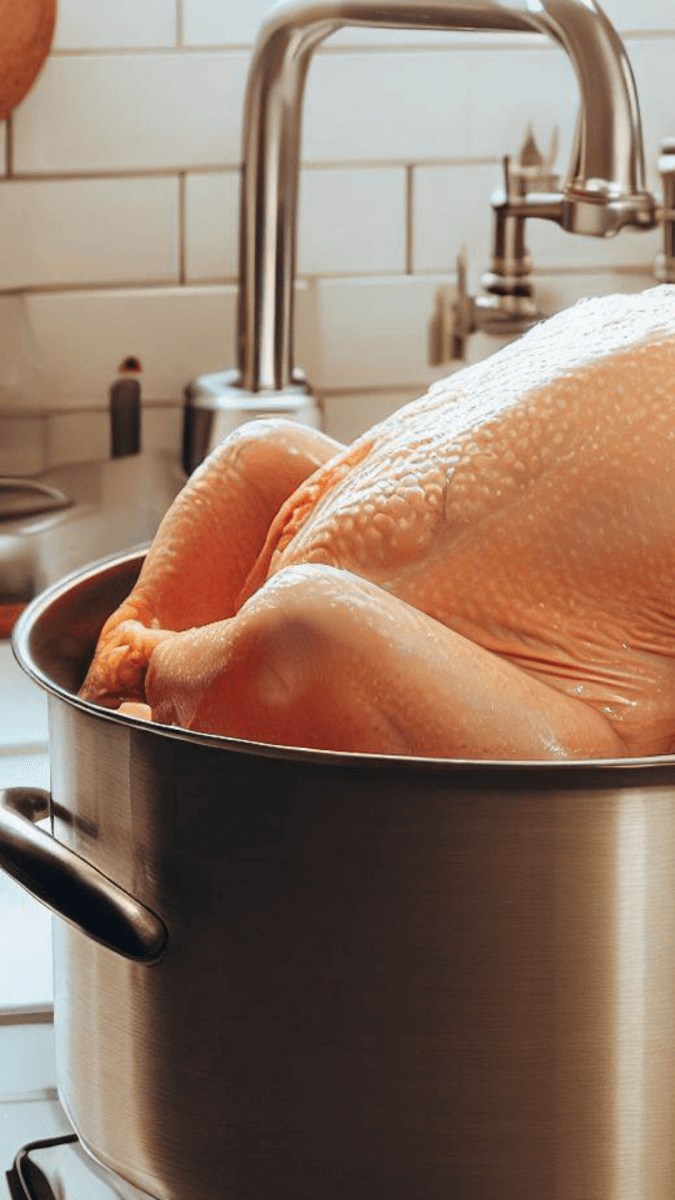
Butter as a duck fat substitute
Butter is a versatile and readily available substitute for duck fat in cooking and baking. While it has a different flavor profile, it can add richness and moisture to dishes. Here’s how to use butter as a substitute for duck fat:
How to use butter as a substitute:
- Use butter in place of duck fat for sautéing vegetables, meats, or seafood. Keep in mind that butter has a lower smoke point than duck fat, so it’s best suited for medium to medium-high heat cooking rather than high-heat applications.
- Brush butter over roasted meats and vegetables. This will add a rich flavor and help with browning.
- When baking, substitute butter for duck fat in recipes that call for greasing pans or adding fat to doughs, batters, or pastry.
- Butter can enhance the flavors of various dishes. Drizzle melted butter over cooked vegetables, pasta, or rice to add a rich touch.
- Use butter as a base for sauces, gravies, and pan sauces to add creaminess and depth of flavor.
- Butter is a common fat used in baking, and it can be substituted for duck fat in recipes for cookies, cakes, pies, and other baked goods. Keep in mind that butter has water content, which can affect the texture of certain baked items. Adjust the recipe as needed.
- Use either salted or unsalted butter, depending on the dish. Be mindful of the salt content in your recipe and adjust accordingly.
Storage:
- Store butter in the refrigerator. If you’re using it for cooking or sautéing, you can cut or melt the amount you need.
While butter doesn’t have the same flavor as duck fat, it can still bring its own unique richness and creaminess to dishes. Feel free to experiment with different recipes and discover how butter can complement various flavors.
It’s important to note that butter has a distinctive taste that might not perfectly mimic the flavor of duck fat. Additionally, butter contains water, which can affect some cooking processes. When substituting butter for duck fat, consider the recipe’s requirements and adjust accordingly to achieve the desired results.
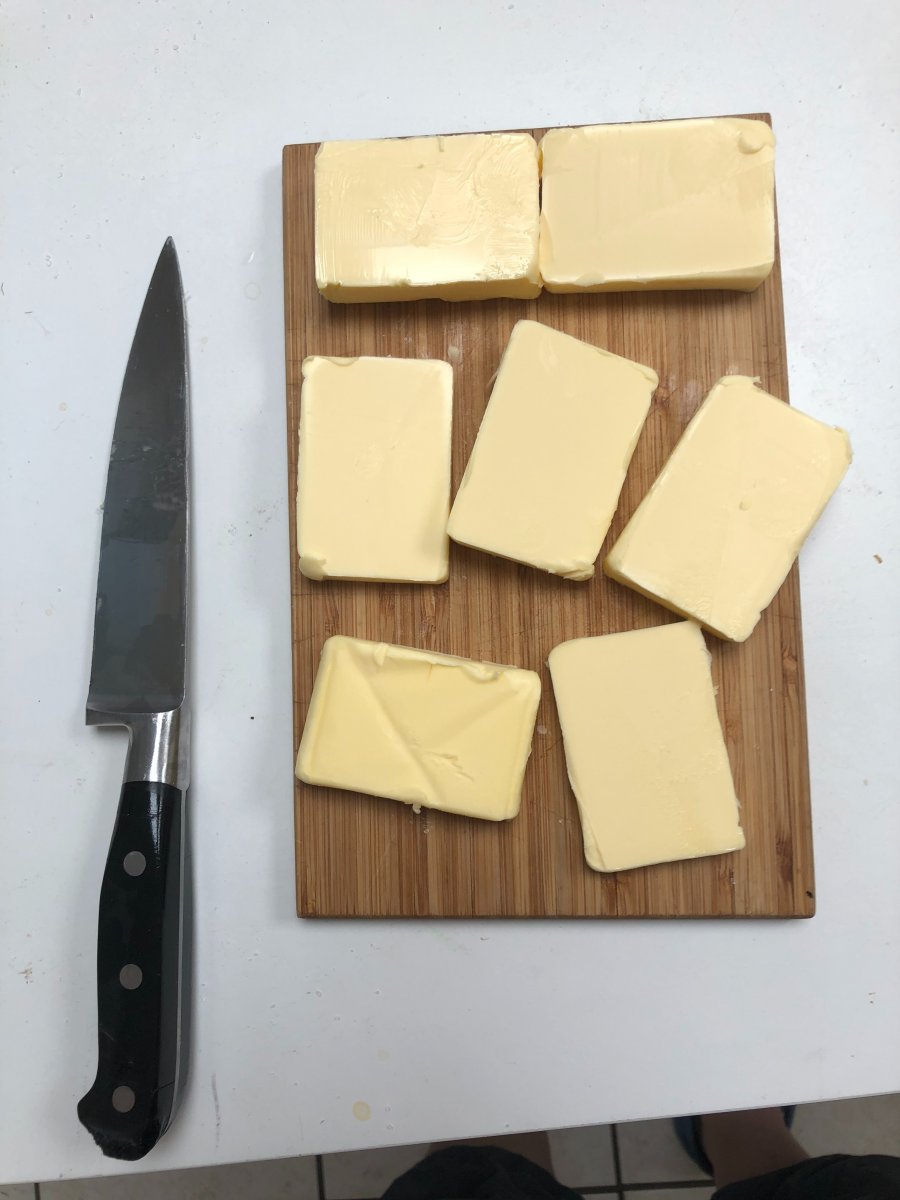
Avocado Oil
Avocado oil is a healthy, neutral-flavored oil that can be used as a substitute for duck fat in various recipes. While it won’t replicate the exact taste of duck fat, it can still provide a high smoke point and it will contribute a mild, buttery note to your dishes.
How to use Avocado Oil as a substitute:
- Avocado oil’s high smoke point makes it suitable for high-heat cooking, such as sautéing, searing, and stir-frying.
- Use avocado oil in place of duck fat for cooking vegetables, meats, seafood, and other ingredients. It can help achieve a good browning effect while adding a touch of richness.
- Brush or drizzle avocado oil over vegetables, poultry, or meats before roasting. This will help with browning and moisture retention.
- Use avocado oil for deep frying due to its high smoke point. You can fry foods like potatoes, chicken, or other items that you might typically use duck fat for.
- In recipes that call for duck fat in baking, such as greasing pans or adding fat to doughs, batters, or pastry, you can use avocado oil instead.
- Use avocado oil as a base for homemade salad dressings. Combine it with vinegar, citrus, herbs, and seasonings to create a delicious vinaigrette.
- Use avocado oil as a base for dips and spreads, adding a light, neutral background that allows other flavors to shine.
Storage:
- Store avocado oil in a cool, dark place to maintain its quality. Keep in mind that it can solidify in the refrigerator, so allow it to come to room temperature before using if it has solidified.
Remember that avocado oil is relatively healthy and contains monounsaturated fats, making it a good option for those seeking healthier cooking oils. Since it has a neutral flavor, it can work well in a wide range of recipes without overwhelming the dish’s existing flavors.
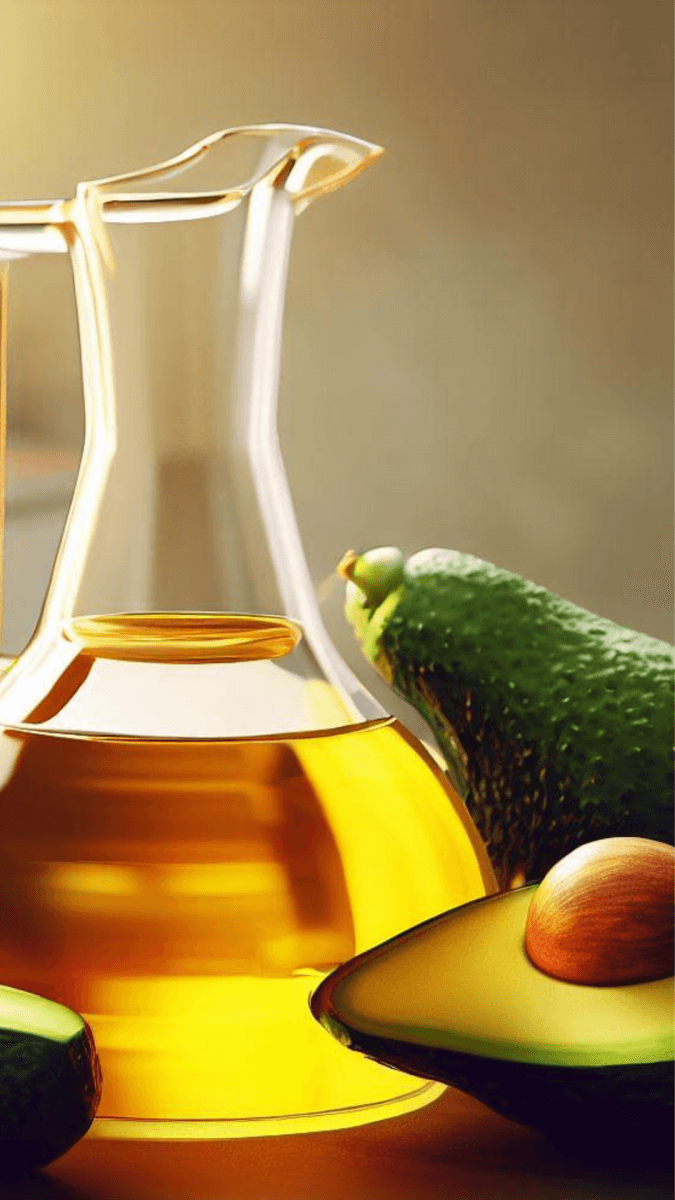
Vegetable Oil
Vegetable oil, particularly neutral-flavored varieties like canola, grapeseed, or sunflower oil, can be used as a substitute for duck fat in cooking and frying. While it lacks the distinctive flavor of duck fat, it has a high smoke point and can provide a good cooking medium.
How to use vegetable oil as a substitute for duck fat:
- Vegetable oil’s high smoke point makes it suitable for high-heat cooking methods such as sautéing, frying, and stir-frying.
- Use vegetable oil in place of duck fat for cooking vegetables, meats, seafood, and other ingredients that require high-temperature cooking.
- Use vegetable oil for deep frying due to its ability to maintain stability at high temperatures. You can fry foods like potatoes, chicken, or other items that you might typically use duck fat for.
- In baking recipes where duck fat is used for greasing pans or adding fat to doughs, batters, or pastry, you can use vegetable oil instead.
- For Asian-inspired dishes that require quick and high-heat stir-frying, vegetable oil can work well to prevent sticking and achieve a nice sear on ingredients.
- Use vegetable oil for shallow pan frying, such as making pan-fried dumplings, fritters, or cutlets.
- Vegetable oil is relatively neutral in flavor, so it won’t contribute much taste to your dishes. However, this can be an advantage if you want to highlight other flavors in your recipes.
- Since vegetable oil is neutral, you may need to adjust your seasoning to ensure your dishes are well-seasoned.
Storage:
- Store vegetable oil in a cool, dark place to maintain its quality.
Keep in mind that vegetable oil is a versatile and accessible option, but it doesn’t bring the same depth of flavor as duck fat. However, it’s a great choice when you need a cooking medium that won’t interfere with the flavors you’re trying to achieve in your dish.
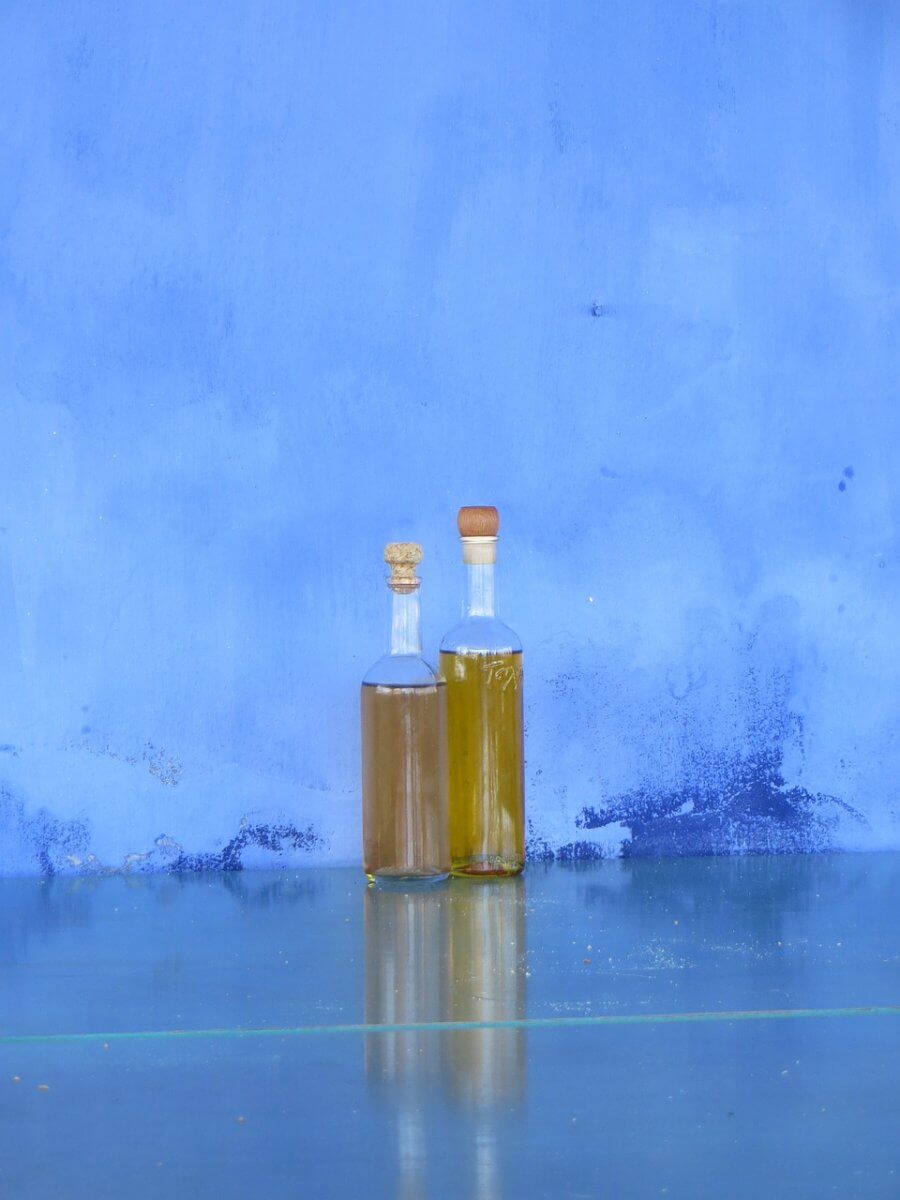
Lard as a duck fat substitute
Lard is rendered pork fat and can be used as a substitute for duck fat in various cooking applications. It has a rich flavor and high smoke point, making it a suitable option for sautéing, frying, and roasting.
How to use lard as a substitute for duck fat.
- Use lard in place of duck fat for sautéing vegetables, meats, seafood, and other ingredients. Lard’s flavor can add a pleasant richness to your dishes.
- Use lard to coat vegetables, poultry, or meats before roasting. It can help with browning and impart a savory taste.
- Lard is excellent for frying due to its high smoke point. You can use it for deep frying foods like potatoes, chicken, or other items you might typically use duck fat for.
- In baking recipes that require duck fat for greasing pans or adding fat to doughs, batters, or pastry, you can use lard as a substitute. Keep in mind that lard has a different flavor than duck fat, which might affect the taste of your baked goods.
- Depending on the dish, you might need to adjust your seasoning to balance the flavors, as lard has its own distinct taste.
- Lard has a noticeable pork flavor, which can impact the overall taste of your dish. Consider the compatibility of flavors in your recipe.
Storage:
- Store lard in a cool, dark place or the refrigerator to maintain its freshness. It can be kept for an extended period if stored properly.
Remember that while lard can work as a substitute for duck fat, it does have a distinct flavor that might not suit all dishes. It’s a great option for traditional recipes and comfort foods, but you should be mindful of the pork flavor it brings to the table.
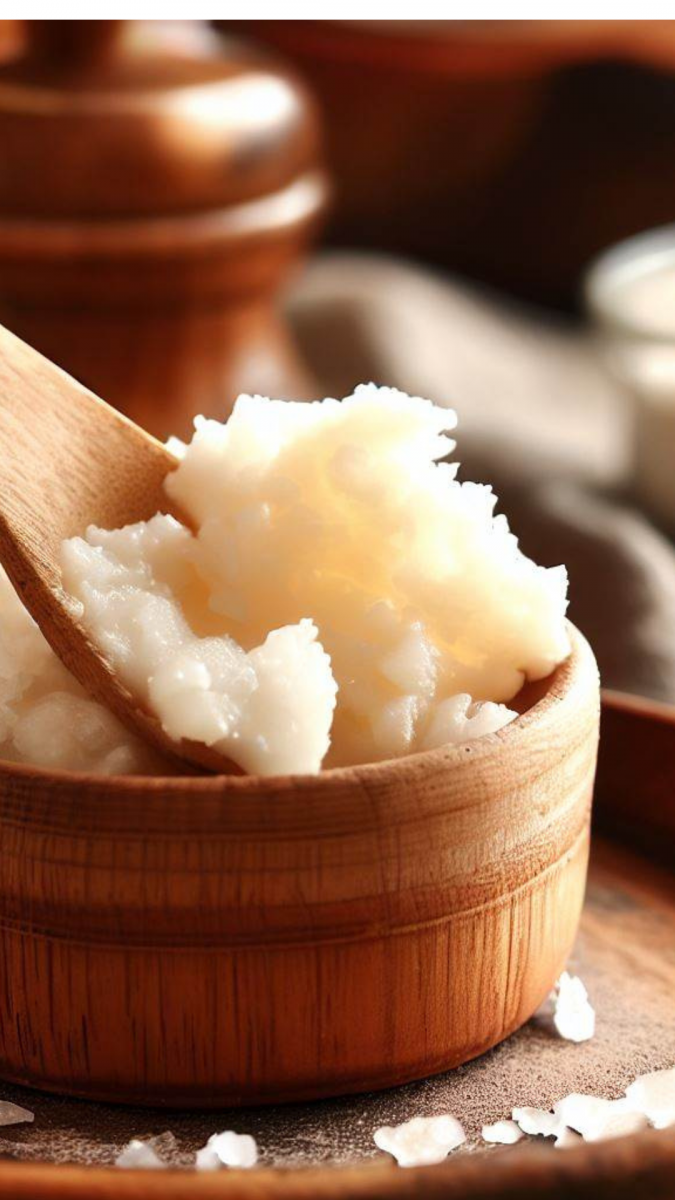
Olive Oil
Olive oil is a flavorful and healthy substitute for duck fat, but it has a distinct taste that can influence the flavor of your dishes. It’s best used in recipes where its characteristic flavor complements the other ingredients.
How to use olive oil as a substitute for duck fat:
- Use olive oil in place of duck fat for sautéing vegetables, meats, and seafood. Its fruity and robust flavor can add depth to your dishes.
- Keep in mind that olive oil has a lower smoke point compared to duck fat, so it’s better for medium to medium-high heat cooking rather than high-heat methods.
- Use olive oil to coat vegetables, poultry, or meats before roasting. It adds flavor and helps with browning.
- In baking recipes that call for greasing pans or incorporating fat into doughs, olive oil can be a suitable alternative. It might be best for recipes where the olive oil flavor complements the other ingredients, such as in Mediterranean-style breads or savory pastries.
- Olive oil is commonly used in salad dressings and marinades. Its unique flavor can shine in these applications.
- Olive oil can serve as a base for dips, spreads, and sauces, adding a rich and distinctive taste.
- Drizzle olive oil over cooked vegetables, pasta, or grilled meats as a finishing touch. It can enhance the dish’s flavors.
Storage:
- Store olive oil in a cool, dark place to prevent it from becoming rancid. Different types of olive oil have varying shelf lives, so check the packaging for guidance.
Be mindful of the strong flavor of olive oil when using it as a substitute. Consider how its taste will interact with the other ingredients in your dish.
Remember that olive oil has its own unique taste that might not work well with every recipe. It’s especially suitable for Mediterranean and European dishes where its flavor profile is appreciated. When substituting olive oil for duck fat, consider the compatibility of flavors and the desired outcome of your dish.
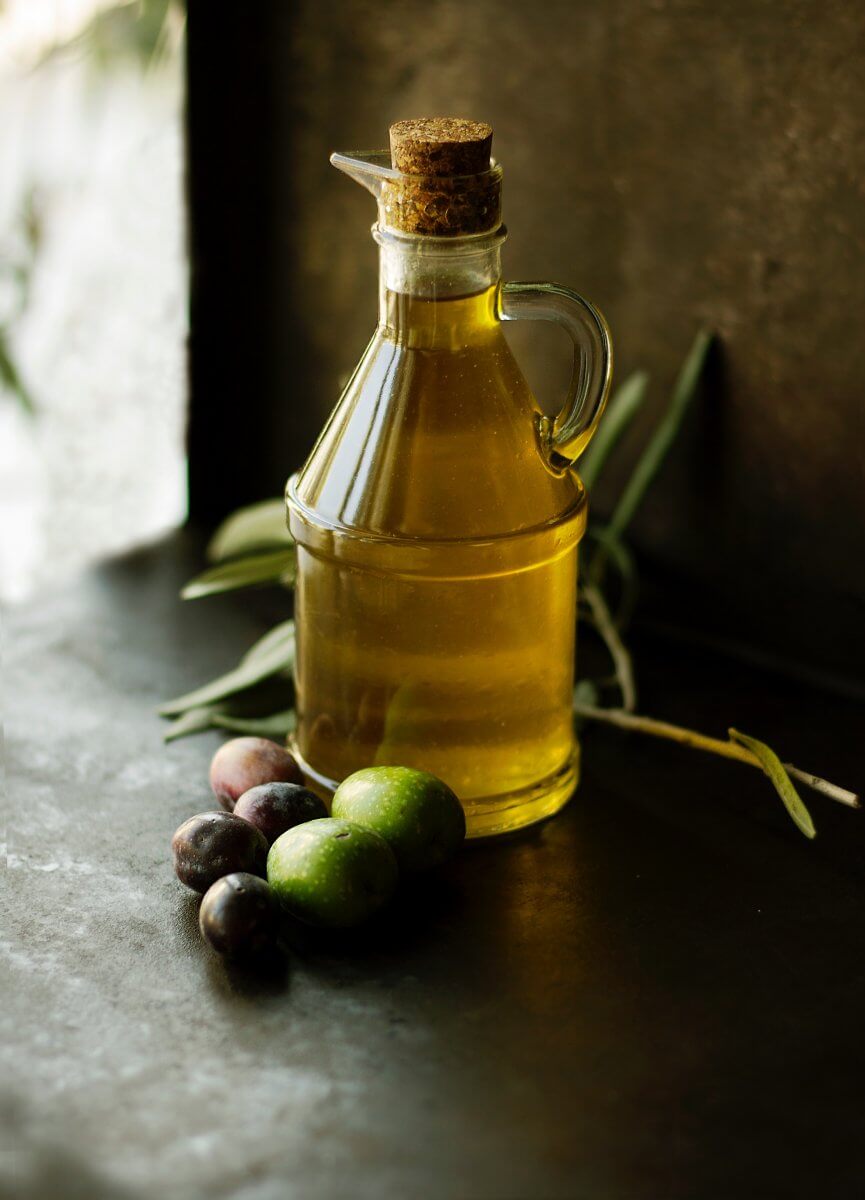
Coconut Oil
Coconut oil can be used as a substitute for duck fat in certain recipes, adding a subtle tropical flavor and a touch of richness. It’s important to note that coconut oil has a distinct taste, so it’s best used in dishes where the coconut flavor complements the other ingredients.
How to use coconut oil as a substitute for duck fat:
- Use coconut oil in place of duck fat for sautéing vegetables, meats, and seafood. The coconut flavor can add a unique twist to your dishes.
- Coconut oil has a relatively low smoke point, so it’s better for medium-heat cooking rather than high-heat methods.
- Coconut oil can be a flavorful addition to baking recipes where the coconut flavor complements the other ingredients. Use it in recipes for cookies, cakes, muffins, and other baked goods.
- For dishes with an Asian or tropical influence, such as stir-fries, curries, or noodle dishes, coconut oil can enhance the flavor profile.
- Use coconut oil to coat vegetables, poultry, or meats before roasting. It can impart a hint of coconut flavor and contribute to browning.
- Coconut oil has a sweet, coconutty taste, so consider the flavors of the dish and how they will interact with the coconut flavor.
- Coconut oil can be melted and used as a base for dips and dressings, providing a subtle tropical touch.
Storage:
- Store coconut oil in a cool, dark place. If it’s solid due to cooler temperatures, gently warm it before using.
Keep in mind that the coconut flavor of the oil can influence the overall taste of your dish. Balance it with other ingredients.
Coconut oil’s flavor can add a distinct character to your dishes, but it’s important to choose recipes where the coconut taste is complementary. When substituting coconut oil for duck fat, consider the flavors you want to highlight and whether the coconut flavor aligns with your intended outcome.
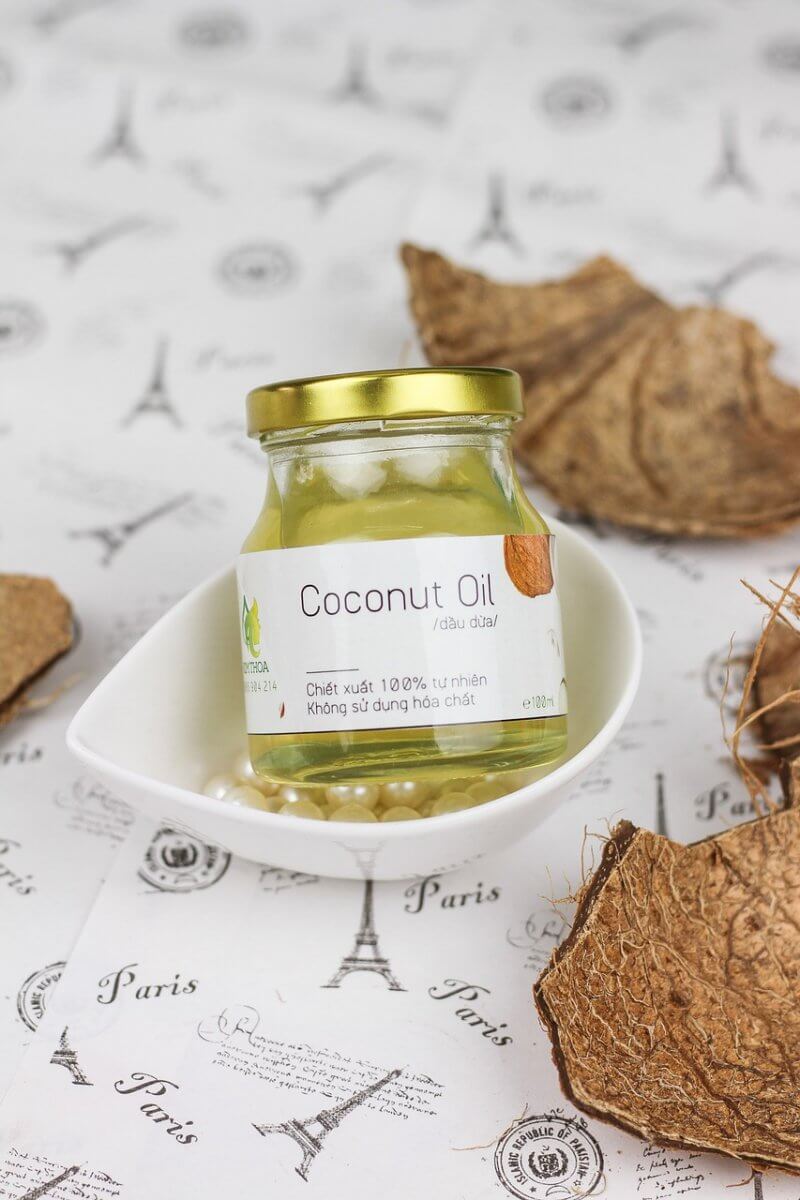
Vegetable Shortening as a duck fat substitute
Vegetable shortening is a solid fat that’s commonly used in baking and frying due to its high smoke point and ability to create tender baked goods. While it doesn’t have the same flavor profile as duck fat, it can be used as a substitute in certain recipes.
How to use vegetable shortening as a substitute for duck fat:
- Vegetable shortening is often used in baking recipes to create tender and flaky textures in pastries, pie crusts, biscuits, and cookies.
- Use vegetable shortening in place of duck fat in baking recipes that call for incorporating fat into the dough or batter. Keep in mind that the flavor will differ, so choose recipes where the substitution won’t negatively impact the overall taste.
- Vegetable shortening has a high smoke point and can be used for frying foods like doughnuts or other deep-fried treats. It will provide a neutral background flavor.
- When making pastry dough, such as for pie crusts or tart shells, you can use vegetable shortening instead of duck fat. This will still help create a tender and flaky crust.
- Vegetable shortening contributes a specific texture to baked goods that might not be present with duck fat. This is especially important in recipes where achieving a certain texture is crucial.
- Keep in mind that vegetable shortening has a neutral flavor, so you might need to adjust seasonings or add other flavor elements to ensure your dish isn’t lacking in taste.
Storage:
- Store vegetable shortening in a cool, dry place or in the refrigerator, as it can become soft or melty at higher temperatures.
Remember that while vegetable shortening can work as a substitute for duck fat in baking and frying, it won’t bring the same flavor or benefits of duck fat’s rich taste and high smoke point. Choose recipes where the neutral flavor and texture-enhancing properties of vegetable shortening align with your desired outcome.
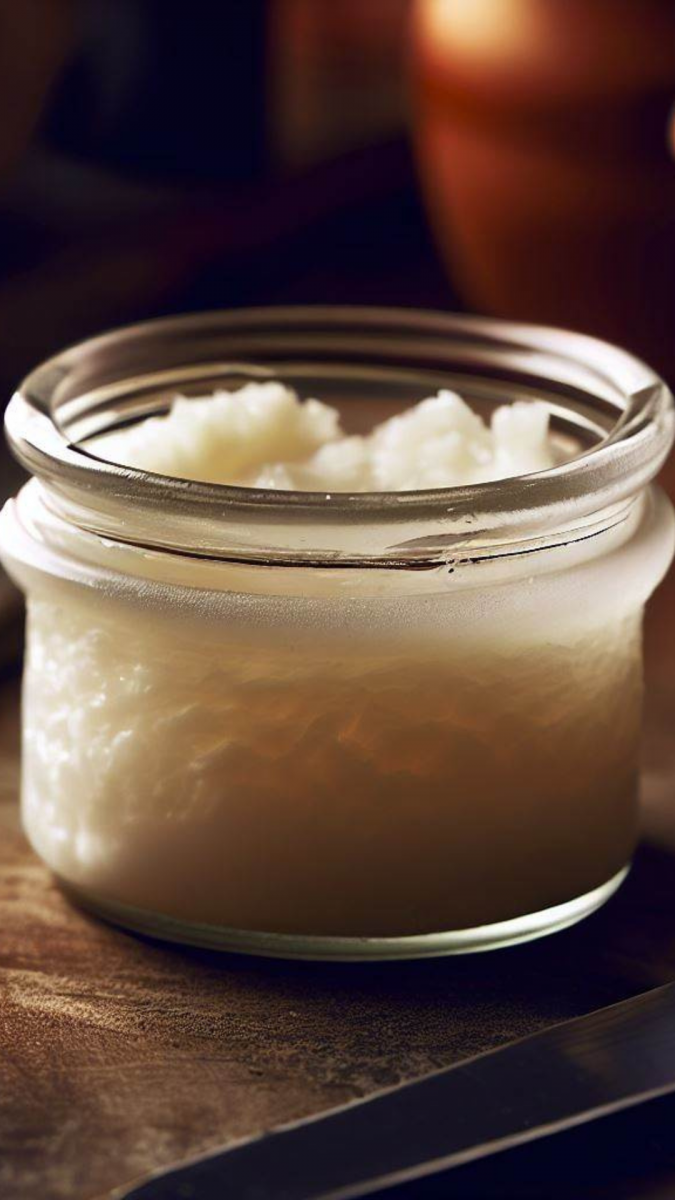
FAQs
What can I use instead of duck fat for roast potatoes?
For delicious crispy roast potatoes, you can swap out duck fat with a few tasty alternatives! One option is good old olive oil – it gives potatoes a nice golden crust and adds a subtle fruity flavor. If you want a richer taste, try using melted butter or even a bit of bacon fat for that savory kick. Whatever you choose, those potatoes are gonna roast up deliciously crispy and golden brown!
Why is duck fat so good for potatoes?
Duck fat and potatoes are like a match made in heaven. Duck fat has this great ability to give potatoes the crispiest edges and a rich, savory flavor that’s hard to beat. It has a higher smoking point than many other fats, so it gets super hot without burning, which helps potatoes get that perfect golden crunch on the outside while staying fluffy inside. Plus, duck fat adds a subtle richness and depth that takes roasted potatoes to a whole new level of deliciousness. It’s like giving your spuds a gourmet upgrade – they come out crispy, golden, and irresistibly tasty!
How unhealthy is duck fat?
Well, duck fat might not be your everyday health food, but it’s not as bad as you might think! It’s high in saturated fats, which in large amounts can raise cholesterol levels. But here’s the twist: duck fat also contains monounsaturated fats, similar to olive oil, which can actually be good for your heart in moderation.
Like all fats, the key is moderation. Using duck fat occasionally to jazz up your cooking – like for those extra special roast potatoes or to add flavor to a stew – can be a tasty treat without too much guilt. Just balance it with plenty of veggies and lean proteins in your meals, and you’ll be savoring those crispy duck fat potatoes without a worry in the world!
Summary for Duck Fat substitutes
Okay – that’s you all sorted with suitable substitutes for duck fat.
In conclusion, duck fat is a unique and flavorful cooking fat known for its rich taste and high smoke point. While there’s no exact substitute that perfectly replicates its characteristics, there are various options you can consider based on your needs, preferences, and the dish you’re preparing.
- Chicken Fat (Schmaltz): Similar in flavor and can be used for sautéing, frying, and roasting.
- Butter: Adds richness and flavor; best for sautéing, roasting, and baking.
- Olive Oil: Provides a fruity and robust note, suitable for sautéing, roasting, and dressings.
- Vegetable Oil: Neutral with a high smoke point, great for sautéing, frying, and high-heat cooking.
- Coconut Oil: Imparts a tropical flavor, ideal for baking, sautéing, and dishes where the flavor fits.
- Avocado Oil: Mild and versatile, suitable for sautéing, roasting, and frying.
- Pork Lard: Rich flavor, good for frying, sautéing, and certain traditional dishes.
- Bacon Fat: Smoky and savory, works well for sautéing, frying, and adding flavor.
- Vegetable Shortening: For baking, it creates tender textures in pastries and crusts.
When substituting, consider the flavors, smoke points, and unique properties of each option. While the substitutes won’t replicate duck fat exactly, they can still contribute their own characteristics to your culinary creations. Ultimately, your choice will depend on the recipe, your taste preferences, and any dietary considerations. Experiment and enjoy the journey of discovering how these alternatives can enhance your cooking endeavors.
We have gathered together a lot more facts on ingredients such as herbs, spices, oils, nuts, etc. if you would like to learn some more.
Table of Contents
- What is the best Duck Fat substitute?
- What is Duck Fat?
- Where can I buy Duck Fat?
- What can I substitute for Duck Fat?
- Duck Fat substitutes
- FAQs
- Summary for Duck Fat substitutes
